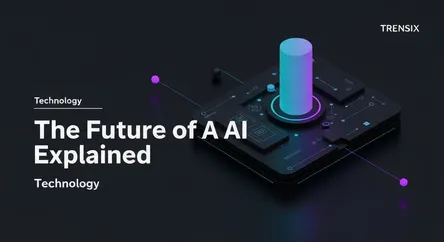Technology
The Future of AI Explained

Explore what's next for artificial intelligence, from advanced AGI to its transformative impact on jobs, healthcare, and our everyday lives.
What is it?
The Future of AI refers to the projected evolution of artificial intelligence beyond its current state. This isn't just about faster algorithms, but a qualitative leap towards more autonomous, creative, and generalized intelligence. Key concepts include Artificial General Intelligence (AGI), where a machine could understand, learn, and apply knowledge across diverse tasks at a human level, and Superintelligence, which would surpass human intellect. The field anticipates breakthroughs in areas like quantum computing, neural network architecture, and robotics, pushing the boundaries of what machines can achieve.
Why is it trending?
Recent rapid advancements, particularly in generative AI and large language models (LLMs) like GPT-4, have brought the future of AI from science fiction into mainstream conversation. Massive investments from tech giants and a global race for AI supremacy are accelerating development at an unprecedented rate. Public fascination, combined with high-profile discussions about AI's potential to solve major global challenges and the ethical risks it poses, keeps the topic at the forefront of news and technology discourse.
How does it affect people?
The future of AI promises to profoundly reshape society. It holds the potential for revolutionary benefits, such as personalized medicine, solutions for climate change, and hyper-efficient supply chains. However, it also presents significant challenges. The automation of cognitive tasks could lead to widespread job displacement, raising questions about economic structures and the nature of work. Furthermore, critical ethical concerns regarding bias, privacy, autonomous decision-making, and control must be addressed to ensure AI develops in a way that is safe and beneficial for all humanity.